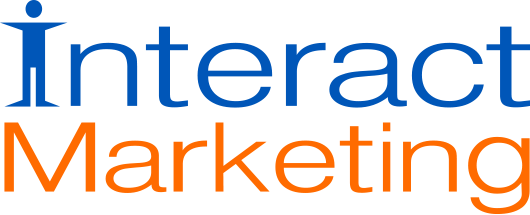As holiday shopping sales continue their surge, marketers are looking for the best methods of targeting consumers and potential business partners. The growth of social media marketing has led countless organizations to use the channel as a means to expand their visibility and target new customers.
Popular platform Twitter’s success as a social marketing leader has come with minimal distinction between businesses and consumer users on the website. However, Brafton reported on Thursday that the company has decided to roll out brand pages to provide companies relying on the website with a more effective platform.
The primary difference between brand pages and typical consumer accounts is, well, a business’ ability to brand their pages more effectively. Previously, business Twitter pages were no different than any other page. Now, brands can use larger logos as their default images. Moreover, a banner at the top of a page allows companies’ to highlight slogans or especially noteworthy Tweets as part of their social marketing campaign.
As brand pages rolled out on Thursday, Twitter also announced some major changes to its layout for both new brand pages and consumer accounts that will change the way people access content on the website and discover new users and information, Brafton reported.
In a video posted on a company blog, Twitter unveiled its new Home, Connect and Discovery buttons that act as the primary navigation tools for the website. Users click these buttons to access their own timelines, @mentions and all other content on the website. Moreover, the Discovery tab shows users news stories trending on Twitter and allows them to invite email contacts from major service providers to join Twitter. It could also add more visibility for companies as it enables users to search for users according to categories.
Expanding its service with both consumers and businesses is critical for Twitter moving forward as its primary competitors have been aggressive in fine-tuning their appeal as social media marketing tools.
For example, Google+ Pages are now available on Google SERPs for both logged-in and unsubscribed users, Brafton reported. A search query for a business that maintains a Google+ Page will now show the account page as result on the SERP. Additionally, content the brand has shared on Google+ is sometimes featured under the main link to the company’s account, which potentially gives SEO marketers prime first page real estate for branded queries. For non-Google+ users, the presence of their favorite company’s social media content on Google SERPs may provide the impetus to make the move to Google+.
It’s unclear whether or not businesses with Google+ accounts are receiving any boost in their search ranking due to their presence. However, there are indirect benefits of effective social media marketing for SERP standing. Effective social campaigns will increase the number of inbound links a business receives, and promote social sharing that will result in traffic increases. The current popularity of Facebook and Twitter has driven social’s value for businesses, and Google’s dogged efforts to make its platform a viable competitor may very well compel more to make the addition.
Clearly defined ROI on social can be difficult for businesses, but a recent report from AllFacebook.com highlighted a study conducted by Extole that found a business successfully increased its conversion rate by 433 percent with a Facebook marketing campaign. According to the report, each fan shared the company’s page and social content, which significantly increased the visibility and prospect base for the business, Brafton reported.
Other companies have used the platform as a wildly effective social media marketing platform. Brafton highlighted a poll from Ad-ology Research, which found 86.8 percent of businesses using Facebook consider it to be either “very beneficial” or “somewhat beneficial” to their organization as a whole.
Brafton reported that the poll also found Twitter, LinkedIn and Google+ have also helped companies in their pursuit of success with social. While Facebook remains the most popular and effective, depending on which study you believe the most, it’s clear that maintaining a presence on each major platform can be largely effective for a business.
Businesses looking to better track the success of social campaigns were happy with the recent announcement of updated Facebook Insights. The service essentially tracks the behavior of a brand’s fans and information about them. However, with companies using so many different social tools, amassing this information in one place may be most effective. Brafton reported on Thursday that Google is attempting to do this with a social analytics feature that businesses can use as part of their Google Analytics accounts.
In the blog post announcing the service, Google reported that many social media platforms have already opted to integrate with the service. However, there were two pretty important company names absent from the list – Facebook and Twitter. The post reads like an open letter to the two social giants urging them to participate to help business owners use social more effectively.
The uses for social media marketing are well documented, and these include the channel’s effectiveness as a platform for sharing content marketing material. Brafton covered updates about social sharing at this week’s SMX conference, and many experts in attendance advocated content marketing as the basis of social campaigns.
According to MarketingProfs, 60 percent of B2B marketers will adopt content marketing in 2012. Brafton reported that this figure represents an increase from the 51 percent of businesses planning to use marketing content in the same poll conducted last year. Additionally, 62 percent of companies planning to use content will outsource its creation of the content to a third-party.
With improved SEO frequently cited as a top goal for content marketing efforts, a report from the DAC Group found that 71 percent of businesses begin the research for their purchase decisions on a search engine. Content marketing campaigns can boost a business’ standing in search by boosting cached pages and generally improving the quality of a website, Brafton has reported.
With Twitter as the big story this week, next week will likely result in reviews of the platform’s new layout and features. The first 24 hours resulted in mixed reviews from consumers. The next week should tell us what marketers have to say.


